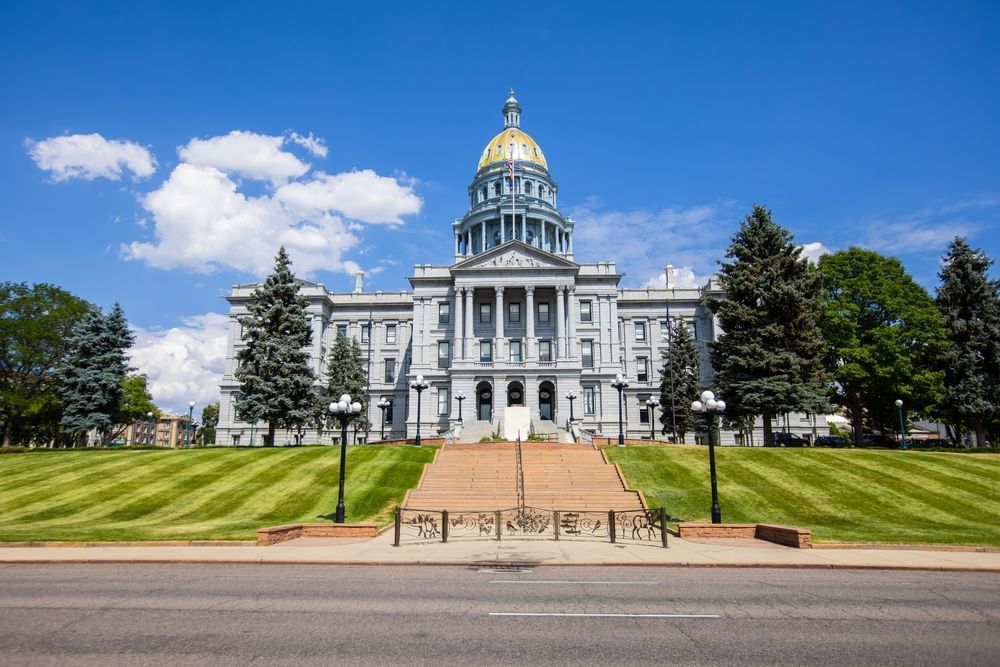Resolving family legal issues can be stressful and complicated. Emotions run high, and it can be difficult to see the matter clearly. You need objective legal counsel from an experienced family attorney. Call the Law Office of John Williams in Charlotte, NC. John Williams can assist you if you're filing for divorce. He also handles child custody and guardianship cases.
Arrange for a consultation with a divorce attorney in Charlotte, NC today.
State Issues
Colorado’s Misguided Allocation of Public Assistance

Colorado’s Misguided Allocation of Public Assistance
As of July 2025, Colorado’s expansion of public assistance, particularly healthcare, to illegal aliens has ignited a heated debate about fairness, fiscal responsibility, and the proper use of taxpayer resources. Programs like Cover All Coloradans, enabled by HB 22-1289, provide Medicaid-equivalent coverage to undocumented children and pregnant women, with costs soaring far beyond initial projections. While proponents frame this as a humanitarian necessity, the policy places an unsustainable burden on taxpayers and raises serious questions about whether the state is neglecting its citizens in favor of non-citizens. This commentary argues that public assistance should be reserved for legal residents who contribute to Colorado’s social safety net, highlighting the financial, ethical, and legal implications of current policies.
The Escalating Financial Burden
The financial cost of providing healthcare to illegal aliens in Colorado is staggering and growing rapidly. The Cover All Coloradans program, launched in 2022, was initially estimated to cost $2 million annually. However, according to Axios Denver, costs have surged by over 600%, reaching $16 million in the current fiscal year and projected to hit $32 million in the next fiscal year starting July 1, 2025. Enrollment has already exceeded 14,000 individuals, with projections suggesting it could reach 15,000 next year, driven by an influx of approximately 42,000 immigrants from the U.S. southern border. These figures do not include other state-funded benefits, such as dental care, mental health counseling, and subsidies for rent and utilities, which added an estimated $12 million annually as of 2022.
This dramatic cost increase strains Colorado’s budget, which is already facing a projected $700 million - $1.3 Billion deficit next year. Taxpayers, many of whom are grappling with rising living costs, are footing the bill for these programs. The state’s balanced budget requirement and the constraints of the Taxpayer Bill of Rights (TABOR), which limits revenue growth and mandates voter approval for tax increases, make it difficult to absorb these costs without cutting other essential services. For instance, funding for education, infrastructure, or public safety could be reduced, directly impacting citizens who rely on these services.
Neglecting Citizens’ Needs
Public assistance programs, including Medicaid, were designed to support legal residents who contribute to society through taxes and adherence to the law. By extending these benefits to illegal aliens, Colorado is effectively prioritizing non-citizens over its own residents. The Cover All Coloradans program, which provides full Health First Colorado (Medicaid) or Child Health Plans Plus (CHP+) benefits to undocumented children and pregnant women starting January 1, 2025, diverts resources from citizens who may face longer wait times or reduced access to healthcare. Similarly, programs like OmniSalud, which offers state-funded health insurance subsidies to undocumented adults, further strain the system.
Citizens, who pay into the state’s social safety net through income, sales, and property taxes, deserve priority access to these resources. The state’s decision to allocate significant funds to non-citizens risks eroding public trust in the fairness of the system.
Ethical and Moral Considerations
The ethical argument for reserving public assistance for citizens rests on the principle of the social contract. Citizens contribute to the state through taxes, civic participation, and adherence to legal obligations, earning them a primary claim to public resources. Illegal aliens, while part of the community, do not share the same legal responsibilities, loyalties or contributions. Providing them with taxpayer-funded benefits undermines the fairness of the system and risks creating a precedent that could further strain resources.
Proponents argue that providing healthcare to illegal aliens is a humanitarian necessity, as they are part of Colorado’s communities and deserve care. However, compassion must be balanced with responsibility. Alternative solutions, such as private charities or international aid organizations, could address humanitarian needs without burdening public assistance programs. Moreover, the state’s policies may inadvertently encourage more undocumented immigration, as individuals may be drawn to Colorado’s generous benefits, further exacerbating the financial strain.
Legal and Constitutional Concerns
Colorado’s expansion of public assistance to illegal aliens is under scrutiny for potential legal violations. The Trump administration’s investigation into the state’s Medicaid spending, reported by The Colorado Sun, focuses on the “fiscal integrity” of programs like Cover All Coloradans. The federal Centers for Medicare and Medicaid Services (CMS) has requested detailed data, including personal information on Medicaid claims and patients’ immigration status, to ensure that federal funds are not misused for nonemergency care for individuals without “satisfactory immigration status.” Federal law prohibits such use, and legal immigrants often face a five-year waiting period for nonemergency Medicaid services.
The investigation highlights the risk of financial penalties or loss of federal matching funds, which could further strain Colorado’s budget. Additionally, three Republican Congress members have urged Governor Jared Polis to end programs like Cover All Coloradans and OmniSalud, citing the potential loss of federal funding. The state’s use of fees to bypass TABOR’s voter approval requirements for tax increases is also controversial, with critics like Republican state Representative Mike Lynch arguing that it undermines voter protections and effectively taxes citizens without their consent.
Political Divide and Public Sentiment
The issue of public assistance for illegal aliens is deeply divisive in Colorado. Democrats, led by Governor Polis, have championed inclusive policies, framing them as a moral imperative. For example, state Senator Julie Gonzales has supported these programs as essential for equitable recovery post-pandemic. Conversely, Republicans argue that they prioritize non-citizens over Citizens, with figures like Representative Richard Holtorf warning of a “fiscal cliff” due to unchecked spending. The debate is further complicated by TABOR, which some Democrats have discussed modifying or repealing, though such changes would require voter approval.
Public sentiment reflects this divide. Many Coloradans feel that their tax dollars should prioritize citizens, particularly in a time of economic uncertainty. The state’s decision to issue $1.7 billion in TABOR refunds in 2025, while simultaneously funding benefits for illegal aliens, fuels perceptions of unfairness. The ongoing federal investigation adds pressure, as it could lead to policy changes or funding cuts that affect all residents.
Economic Implications
The economic impact of these policies extends beyond direct costs. A report by CPR News, citing the Commonwealth Fund, estimates that cuts to Medicaid and other programs could cost Colorado’s economy 14,000 jobs and shrink the state’s GDP by $1.6 billion. While these programs support healthcare jobs and local economies, the benefits are offset by the strain on taxpayers and potential reductions in other services. The increased demand for healthcare from illegal aliens also puts pressure on hospitals, leading to higher uncompensated care costs and potentially raising commercial insurance rates for citizens.
Counterarguments and Refutations
Supporters of these policies argue that illegal aliens contribute to the economy through labor and taxes, justifying their access to benefits. Additionally, many illegal aliens send a majority of their earnings back to their home country rather than keeping it in the local community, further depleting the tax base.
However, their contributions are limited compared to citizens, as they are ineligible for many taxes and benefits that form the backbone of the social safety net. The $32 million projected cost of Cover All Coloradans far exceeds any tax revenue generated by illegal aliens, making the economic argument tenuous.
Another argument is that providing healthcare to all residents, regardless of status, strengthens communities. While this is a noble goal, it overlooks the finite nature of public resources. Prioritizing citizens ensures that the system remains sustainable and equitable for those who have a legal claim to it.
Colorado Must find a way to Prioritize Citizens
Colorado’s expansion of public assistance to illegal aliens, particularly through programs like Cover All Coloradans, represents a misallocation of taxpayer resources. The skyrocketing costs, legal risks, and neglect of citizens’ needs highlight the flaws in this approach. Public assistance should be reserved for those who have a legal and moral claim to it, Citizens who contribute to the state’s prosperity. While compassion is important, it must be balanced with fiscal responsibility and fairness. Colorado must reassess its policies to ensure that taxpayer resources are allocated equitably, starting with those who have fulfilled the social contract. Bottom line; Colorado is breaking Federal Law (8 U.S.C. §1324) and it has to stop!
